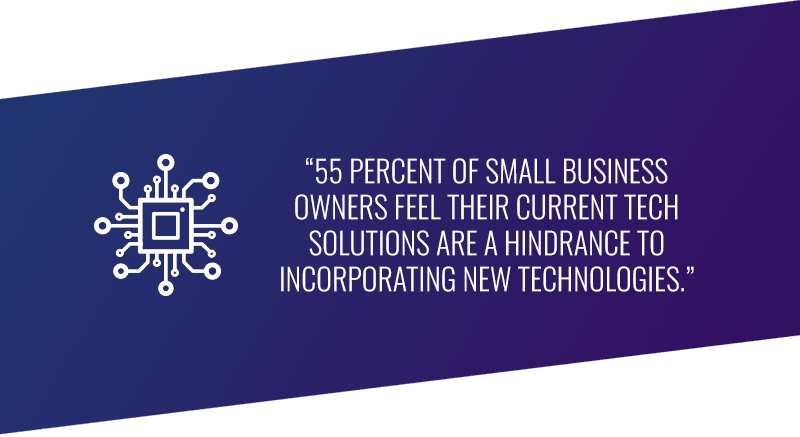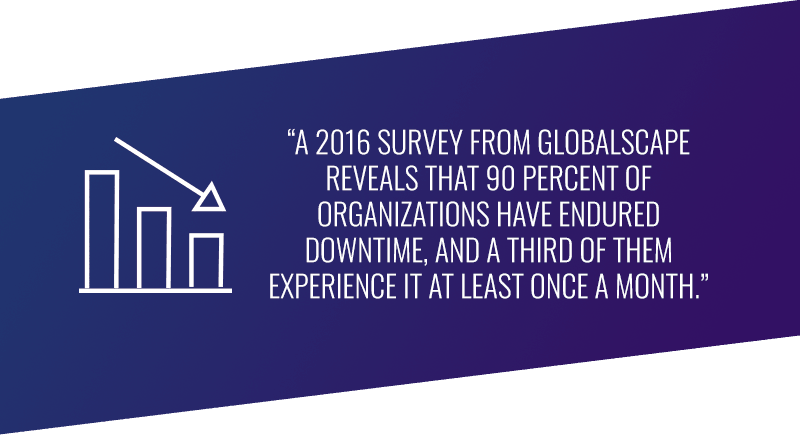Many businesses struggle with their IT systems. In fact, 55 percent of small business owners feel their current tech solutions are a hindrance to incorporating new technologies, according to one study. Moreover, 65 percent say that IT disruption will influence their tech spending decisions. There is a solution. Managed IT services boost productivity and minimize risk. Plus, managed service providers (MSPs) do all the hard work for businesses when it comes to IT, allowing them to focus on other areas of their company. Here’s why more businesses need to hire an MSP in 2018.
Managed IT services boost productivity
Think of MSPs as an extra pair of hands that quickly solves IT-related problems in the workplace. These professionals assume responsibility for a predetermined set of IT services to its clients. Routine maintenance, IT projects, software protection, monitoring, data integration — service providers take care of all of these tasks and more. This boosts productivity in the workplace. In short, business owners spend less time grappling with complicated tech.
 Insight
InsightMSPs offer various software and hardware-related services to clients. Business owners who have difficulty navigating complex IT systems — or still rely on legacy programs — instantly improve productivity simply by streamlining day-to-day tasks. This, in turn, has a trickle-down effect on staff. When managers feel more confident using the available IT tools, so will other employees. Training will be more effective and staff will get more done in the office. 
“Managed services can deliver a wide variety of capabilities, ranging from computing, storage and networking resources to mobility management, cybersecurity, email and unified communications, including telephony services,” says managed services practice leader John Chancellor, writing for BizTech magazine. “The common thread is that, along with the capabilities themselves, the best service providers also offer ongoing management and maintenance of the underlying infrastructure, service guarantees and end-user support.” As business owners across the United States juggle more responsibilities, managing IT services in-house can prove to be a challenge. Frequent software updates, security patches, cybercrime — maintaining an IT system and maximizing efficiency requires a lot of time, resources and money. This is where an MSP comes in. “Small and medium-sized businesses are typical MSP customers,” says TechTarget. “Many smaller companies have limited in-house IT capabilities, so they may view an MSP’s service offering as a way to obtain IT expertise.” Additionally, many enterprise-level organizations have discovered the power and flexibility that comes with partnering with an MSP. When an outside firm hands the mundane tasks associated with routine maintenance and basic support, your internal IT staff can focus on ROI-generating projects. Regardless of the size of your company, working with an MSP is likely a smart move.
Managed IT services minimize risk
MSPs utilize the private, public and hybrid clouds. As a result, these professionals store and back up valuable data in a safe place, away from their clients’ premises. This provides businesses with a wide range of benefits:
- Business owners can access data wherever they are in the world. Cloud storage makes it easy to obtain and share information from a laptop, smartphone or tablet.
MSPs can also reduce downtime. Power outages, computer failures, software problems — all of these can have a detrimental impact on a business. Plus, data and valuable financial information could be at risk.

Managed IT services identify problems before they happen
How else do MSPs reduce risk and improve productivity? Well, these professionals use the latest hardware, software and analytics to predict IT problems before they happen. As a result, business owners can safeguard their organization against potential data threats. Some business owners don’t like to relinquish control of their IT processes. They feel like they can manage their own systems in-house. Unfortunately, this isn’t always the case. MSPs work with business owners to scale IT operations, improve work quality and keep clients happy. Business owners still control their IT systems but no longer have to rely on on-site infrastructure. As a result, this frees up resources and saves companies money. Although hiring an MSP requires an initial outlay, these professionals could provide business owners with a significant return on their investment. They won’t have to manage and maintain their IT systems themselves or pay for IT staff to update software and resolve problems. More business owners want to improve productivity and reduce risk in the workplace. It’s no wonder, then, that the demand for MSPs has skyrocketed in recent years. In fact, experts predict that the managed IT services market will be worth 230 billion by the year 2020.